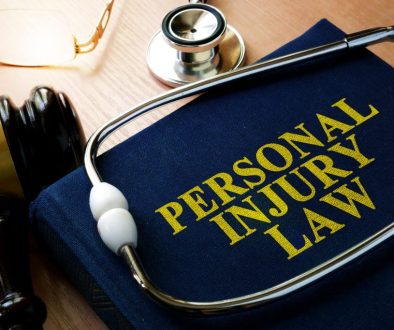Where to File Workers’ Compensation Claims in California
If you’re a worker in California and you’ve been injured on the job, you might be wondering about the next steps to take to secure the benefits you’re entitled to. One of the first crucial steps is knowing how to file workers’ compensation claims. Let’s break down the process to ensure you have the information you need to move forward effectively.
Understanding Workers’ Compensation in California
Workers’ compensation is a state-mandated insurance program that provides financial and medical benefits to employees who suffer job-related injuries or illnesses. In California, this system is designed to cover medical expenses, lost wages, and other costs related to work-related injuries, while protecting employers from lawsuits.
Step-by-Step Guide to File for Workers’ Compensation
1. Report Your Injury
Before you file a formal claim, you must report your injury to your employer. According to California law, you should notify your employer within 30 days of the incident, but it’s best to report as soon as possible to avoid complications. This report can often be done verbally, but it’s wise to follow up with a written report for your records.
2. Employer’s Responsibilities
Once your employer is notified, they are required to provide you with a “Claim Form” (DWC-1). This form is crucial as it starts the workers’ compensation process. Ensure that your employer provides you with this form within one working day of your report. You should complete this form with accurate details about your injury and return it to your employer as soon as possible.
3. File Workers’ Compensation: the Claim Form
The completed Claim Form (DWC-1) should be submitted to your employer. Your employer is responsible for sending the form to their workers’ compensation insurance carrier. Make sure to keep a copy of the completed form for your records.
4. Insurance Company Involvement
Once you file worker’s compensation claim form is submitted, the insurance company will review the details and decide whether your claim is valid. They must notify you within 14 days whether they accept or deny your claim. During this time, your employer’s insurance carrier will be the primary point of contact for any questions or concerns regarding your claim.
5. Follow-Up and Medical Treatment
If your claim is accepted, the insurance company will cover your medical expenses and may provide temporary disability benefits if you’re unable to work. You’ll need to see a doctor approved by your employer’s insurance provider and keep detailed records of your medical treatments and any missed work.
6. Denied Claims and Disputes
If your claim is denied or if there are disputes regarding your benefits, you can request a review by the California Division of Workers’ Compensation (DWC). The DWC provides resources and support to help resolve disputes and ensure that your rights are protected.
Additional Resources
- California Division of Workers’ Compensation (DWC): The DWC website offers a wealth of information, including forms, guides, and contact information for local offices. Visit their site at DWC.ca.gov for more details.
- Workers’ Compensation Appeals Board (WCAB): If disputes arise, you might need to appeal a decision. The WCAB handles such appeals and provides additional guidance.
- Legal Assistance: For complex cases or if you need help navigating the system, consulting with an attorney who specializes in workers’ compensation can be beneficial. They can offer personalized advice and representation to ensure your rights are upheld.
Conclusion
Figuring out how to file workers’ compensation in California involves several key steps, starting with reporting your injury and completing the necessary claim forms. By understanding where to file and the role of your employer’s insurance carrier, you can more effectively manage your claim and focus on your recovery. Remember, the process can be complex, so don’t hesitate to seek professional assistance if needed. Ensuring that your claim is properly filed and managed will help you secure the benefits you’re entitled to and aid in your path to recovery.
If you have any further questions or need more guidance, feel free to reach out to the California Division of Workers’ Compensation or consult with a legal expert specializing in workers’ compensation. Your well-being is paramount, and navigating the claims process with the right information can make all the difference.
Need legal help? In California, navigating legal challenges, whether they involve personal injury, workers’ compensation, criminal defense or civil litigation, can be overwhelming. Expert Attorney Help is here to provide the critical legal support you need. As a leading advocate for individuals facing legal battles, our experienced attorneys understand the complexities of the legal system and are committed to fighting for your best interests. With personalized legal strategies and compassionate support, we are dedicated to achieving the justice and compensation you deserve.
CONTACT US FOR HELP. Call us at (888) 354-6879 or fill out the form on our Contact page.




